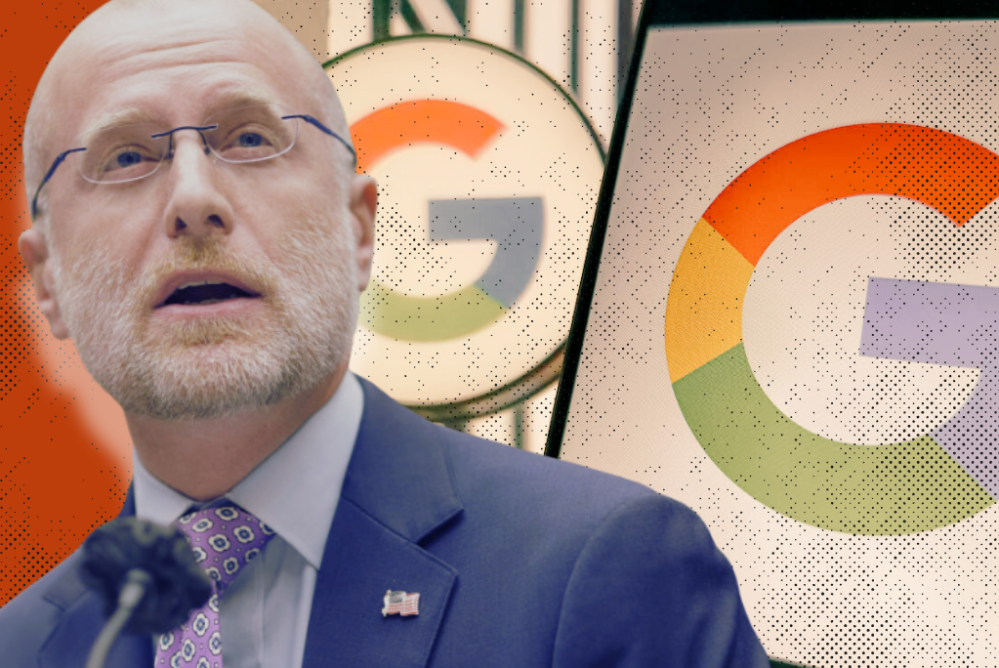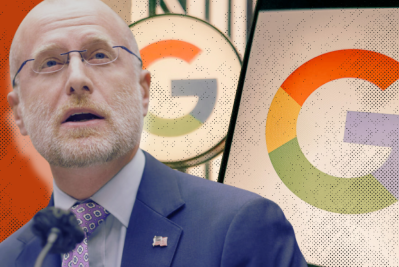Welcome back to Techne! Four years ago, the giant Arecibo Observatory collapsed in spectacular fashion. We now know what happened to cause the destruction of this famed telescope: zinc decay. The full report is now online.
A Different Type of Trump Transition
After the election, Washington, D.C., felt decidedly quiet. It wasn’t like 2016, which felt like a funeral. It was more like the silence that comes after your parents fight in the car, or the unease that comes after a heated political conversation at the Thanksgiving table. I wasn’t dour like some of my friends. But I wasn’t as exuberant as others.
Sam Hammond, economist at the Foundation for American Innovation, nailed it when he wrote in City Journal that, “Over the last four years, a rising power center in U.S. politics has consolidated, backed by an emerging tech elite and the new wealth of the Internet era. The fusion of conservative populism with the tech Right could reshape American governance.” I am hopeful that the best elements of the tech right are adopted, like an embrace of innovation, a desire for streamlined regulations that foster entrepreneurship, and a recognition of the transformative potential of emerging technologies. There’s an opportunity here to harness the energy of this coalition to tackle challenges that have long plagued American governance.
True, there are parts of this coalition that are dispiriting. President-elect Donald Trump wants to raise tariffs, which I think is a really bad idea for all the reasons Scott Lincicome has laid out. Trump also wants to use the military to deport people who are in the United States illegally. And while I am reserving final judgment, Robert F. Kennedy Jr. seems like a bad choice to head the Department of Health and Human Services.
At the same time, Trump’s list of nominees includes a number of people who could help change government for the better: Brendan Carr as chair of the Federal Communications Commission (FCC), Doug Burgum as head of the Department of the Interior, Chris Wright as energy secretary, and Sean Duffy as transportation secretary.
As this administration takes shape, my goal is to call balls and strikes as I see them. I don’t expect to agree with every policy decision or appointee, but I also won’t dismiss the potential for positive change where it exists. Trump’s disinterest in certain policy areas makes the vision of the appointees all the more critical. But if his coalition can focus on policies that drive economic growth, modernize infrastructure, and unlock technological advancements without succumbing to its more troubling tendencies, it might just set the stage for a productive, if unconventional, four years.
New leadership at the FCC.
Long the expected pick to chair the FCC, Brendan Carr is a good selection overall, but I suspect he is going to get bogged down trying to rein in Big Tech.
The current FCC chair, Jessica Rosenworcel, has made a couple of big missteps. Back in 2022, the agency pulled back nearly $886 million in subsidies that were to go to Starlink as well as $1.3 billion headed to LTD Broadband as part of the Rural Digital Opportunity Fund (RDOF). As most know, Starlink uses satellites to provide internet service in remote areas. LTD Broadband, now called GigFire, provides wireless internet service. At first, it seemed like both would get RDOF monies. But then, the FCC switched course and rejected both companies because they “failed to demonstrate” that they could deliver the promised service.
In a statement announcing the rejection, Rosenworcel said, “We must put scarce universal service dollars to their best possible use as we move into a digital future that demands ever more powerful and faster networks. We cannot afford to subsidize ventures that are not delivering the promised speeds or are not likely to meet program requirements.” But those program requirements, as FCC Commissioner Nathan Simington pointed out, “were not in our RDOF rules, were never approved by the Commission, and in fact made their first appearance in this drastic action.”
Rosenworcel also took it upon herself to again change course and apply net neutrality rules. As I wrote in April:
Toward the end of this month, the Federal Communications Commission (FCC) will hold a vote to reinstate a set of rules for internet providers. Consisting of 434 pages and resembling a 2015 order passed during the Obama administration, the new rules are expected to pass given the makeup of the FCC. If enacted, broadband companies and other internet service providers will be prohibited from blocking and throttling content, as well as from engaging in paid or affiliated prioritization. In other words, broadband providers like Verizon FiOS and XFinity wouldn’t be able to charge or slow down content players like Google or Instagram a fee to run their service.
All to say, network neutrality is back.
For better or worse, I have a long enough memory and all the receipts to make the strong case that net neutrality is still a misguided notion. While some might try to convince you otherwise, what’s been at stake with net neutrality from the beginning is the FCC’s regulatory power. Congress has never passed a net neutrality bill, so the FCC has spent almost 20 years navigating through a maze of regulations and legal battles to firmly root the policy. Meanwhile, the courts have been skeptical. After all, agencies shouldn’t be able to stretch beyond their statutory authority.
Thankfully, I expect Carr will return to sensible policy on net neutrality and with Starlink.
But his agenda amounts to much more than just undoing bad policies. When he wrote the FCC chapter of Project 2025, he explained that he wanted the commission to focus on “reining in Big Tech, promoting national security, unleashing economic prosperity, and ensuring FCC accountability and good governance.” I am all for the last three, but the first line item gives me pause.
Among other planned initiatives, Carr wants to apply a transparency rule to Big Tech. As he explains it, “the FCC could require these platforms to provide greater specificity regarding their terms of service, and it could hold them accountable by prohibiting actions that are inconsistent with those plain and particular terms. Within this framework, Big Tech should be required to offer a transparent appeals process that allows for the challenging of pretextual takedowns or other actions that violate clear rules of the road.”
While I am all for transparency and for holding Big Tech accountable, I’ve got reservations about this plan because it would mean that the FCC would be regulating the terms of service and would be in the business of determining what constitutes a proper appeals process. I am no attorney, but it seems that the recent Loper Bright decision doesn’t allow for this kind of extension of authority. More importantly, it runs afoul of the First Amendment. I would imagine that industry trade groups and civil libertarians will take the FCC to court. Expect a long, ugly fight on this.
Another big question about the FCC is what will happen to the other Republican commissioner, Simington, whose five-year term ends in 2025. As Jimm Phillips of Communications Daily reported in July, Simington appears likely to win renomination, but it’s possible he could take another job in the administration. The makeup of the FCC matters.
An all-of-the-above energy approach.
Burgum was on Trump’s vice presidential shortlist, so it’s not a surprise that he would end up as a Cabinet nominee. In a press release that accompanied the nomination, Burgum laid out his goals as interior secretary: “Focusing on innovation over regulation to solve the nation’s challenges will allow us to smartly expand American energy and make our world cleaner and safer by selling energy to our friends and allies versus them having to buy it from our adversaries.” Trump also announced that Burgum would lead the National Energy Council, a task force of federal agencies and departments that will also include Wright as energy secretary.
Burgum and Wright, the CEO and chairman of the oilfield services and fracking company Liberty Energy, are part of a new class of conservative leaders who embrace the realities of climate change and energy production. They aren’t denying the benefits of wind and solar, but they aren’t wedded to it at all costs either. Wright, for example, gave a talk last year in which he called himself a “lifelong” environmentalist. “Climate change is a real problem and I’ve been speaking on it for 20 years,” he said. But he also pointed out that “we can’t make progress toward solving a climate challenge if we’re keeping people in poverty.” Burgum is a former tech entrepreneur who has worked to make North Dakota a leader in oil and gas production. Both Burgum and Wright agree that the United States needs an “all-of-the-above” approach to energy. We need to make energy permitting faster, so solar and wind projects don’t get backlogged, while also ensuring that nuclear and geothermal projects are advanced.
Wright displayed the right mentality when he said that “I am all-in on energy from my start in nuclear, solar, and geothermal to my current efforts in oil and gas and next generation geothermal. I don't care where energy comes [from], as long as it is secure, reliable, affordable and betters human lives.”
Drones, autonomous vehicles, and more.
A former Wisconsin congressman and recent Fox Business host, Sean Duffy faces a host of issues at the DOT if he is confirmed. Chief among them is management of the $1 trillion bipartisan infrastructure bill. Last week, the White House provided an update on the infrastructure bill on the third anniversary of its signing: $568 billion has been announced for more than 66,000 projects. But announcing a project doesn’t mean the money has actually gone out.
During remarks at the Economic Club of New York in September, Trump said he was going to “rescind all unspent funds under the misnamed Inflation Reduction Act (IRA)." While Trump has come out against the IRA, he has been a lot more careful about what he’s said about the Infrastructure Investment and Jobs Act (IIJA). I imagine we will know during the confirmation hearing how Duffy plans to oversee these projects.
Duffy’s nomination comes on the heels of reporting from Bloomberg that the Trump administration is likely to push for a change in how autonomous vehicles are regulated. The existing federal framework imposes significant hurdles, including a cap on production, for manufacturers seeking to roll out vehicles without steering wheels and pedals. But Elon Musk said in October that he wants to deploy robotaxis starting in 2026, and if the reporting is correct, the White House is working with Congress on a bill. I expect there will be movement.
If I were in Duffy’s shoes, I would prioritize new rules for the operation of drones. Currently, drones can’t operate beyond the visual sight of their operators, which limits what they can do. There is bipartisan support for revising these rules, and the DOT has authority.
Duffy also should become an advocate for supersonic aircraft, which are currently illegal over the United States; work to finalize the Modernization of Special Airworthiness Certification (MOSAIC) rulemaking, which my former colleague Eli Douardo has written about; and push for modernization of air traffic control.
Amid the fears that the incoming administration will disregard governing norms and threaten the constitutional order, the Trump executive branch also brings opportunities and reason for optimism. While some policies, like increased tariffs and harsh immigration measures, raise concerns, there’s a promising focus on innovation and infrastructure. From advancing energy technologies and streamlining permitting to addressing regulatory bottlenecks in transportation and communications, this coalition of cabinet members has the potential to drive meaningful progress. By focusing on economic growth, technological advancements, and an all-of-the-above energy strategy, this administration could deliver unconventional but effective governance that benefits all Americans.
Until next week,
🚀 Will
Notes and Quotes
- As part of the antitrust case it won against Google, the Department of Justice is calling for Google to sell off its Chrome browser. I wrote about the case in August. I think the DOJ’s move is a foolhardy one and agree with law professor Gus Hurwitz, who said, “This is the sort of remedy that lawyers who don't know, or particularly care, about the complexities of running a business or encouraging innovation think is easy to implement.” The DOJ, in part, won its case against Google because behavioral economics has shown that “defaults have a powerful impact on consumer decisions." But in the past couple of years, a steady stream of research has been altering that consensus. This thread by economist Brian Albrecht explores that shifting perspective.
- Spirit Airlines has officially filed for bankruptcy, just eight months after President Joe Biden’s Department of Justice successfully blocked a merger between it and JetBlue. Back in March, Attorney General Merrick Garland praised the decision, saying, “Today’s decision by JetBlue is yet another victory for the Justice Department’s work on behalf of American consumers.” I wonder if Garland wants to revise that statement.
- In a retrospective piece, Brian Potter of the Construction Physics Substack explains the enduring influence of Bell Labs: “Discussion of Bell Labs tends to center around the impact and successes of the Labs itself. But a perhaps underappreciated impact of Bell Labs is the influence it had on other large corporations. Bell Labs was highly prestigious, and its invention of the transistor demonstrated that world-changing products could come by funding ‘basic’ scientific research. Inspired by Bell Labs, in the second half of the 20th century, a variety of corporations started their own research operations based on the Bell Labs model.”
- One of my favorite finance and tech writers, Byrne Hobart, has a new book out about the production of science. City Journal has a preview of its core argument.
- Perhaps the reason I liked this report in the New York Times from Peter Eavis is because it confirms my beliefs on the subject of robotics: “Yet, even though robots are starting to take over some repetitive and cumbersome jobs [at Amazon’s warehouses], there are still many tasks they are not good at, making it difficult to know when or if robots will be able to fully automate this industry.”
- The European Union has hit Meta with a fine of more than $840 million. The charge? The company was engaging in “abusive practices” favoring Facebook Marketplace.
AI Roundup
- This week I enjoyed reading John Cochrane’s essay on AI regulation, and this part captures my viewpoint perfectly: “Yes, new technologies often have turbulent effects, dangers, and social or political implications. But that’s not the question. Is there a single example of a society that saw a new developing technology, understood ahead of time its economic effects, to say nothing of social and political effects, ‘regulated’ its use constructively, prevented those ill effects from breaking out, but did not lose the benefits of the new technology?”
- Covington & Burling, a respected law practice, just released an extended analysis of the Texas Responsible AI Governance Act (TRAIGA), noting its similarities to Colorado’s AI act and the E.U.’s AI legislation. I watch state laws closely, and this one is a head scratcher. TRAIGA is an expansive regulatory bill, which seems odd given it is happening in Republican-dominated Texas. As the analysis points out: “TRAIGA would apply to systems that are a ‘contributing factor’ in consequential decisions, not those that only constitute a ‘substantial factor’ in consequential decisions, as contemplated by the Colorado AI Act. Additionally, TRAIGA would define ‘consequential decision’ more broadly than the Colorado AI Act, to include decisions that affect consumers’ access to, cost of, or terms of, for example, transportation services, criminal case assessments, and electricity services.”
Correction, November 21, 2024: A previous version of this article incorrectly stated that Sean Duffy was a Fox Business host. He left the position earlier this week.







Please note that we at The Dispatch hold ourselves, our work, and our commenters to a higher standard than other places on the internet. We welcome comments that foster genuine debate or discussion—including comments critical of us or our work—but responses that include ad hominem attacks on fellow Dispatch members or are intended to stoke fear and anger may be moderated.
With your membership, you only have the ability to comment on The Morning Dispatch articles. Consider upgrading to join the conversation everywhere.